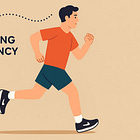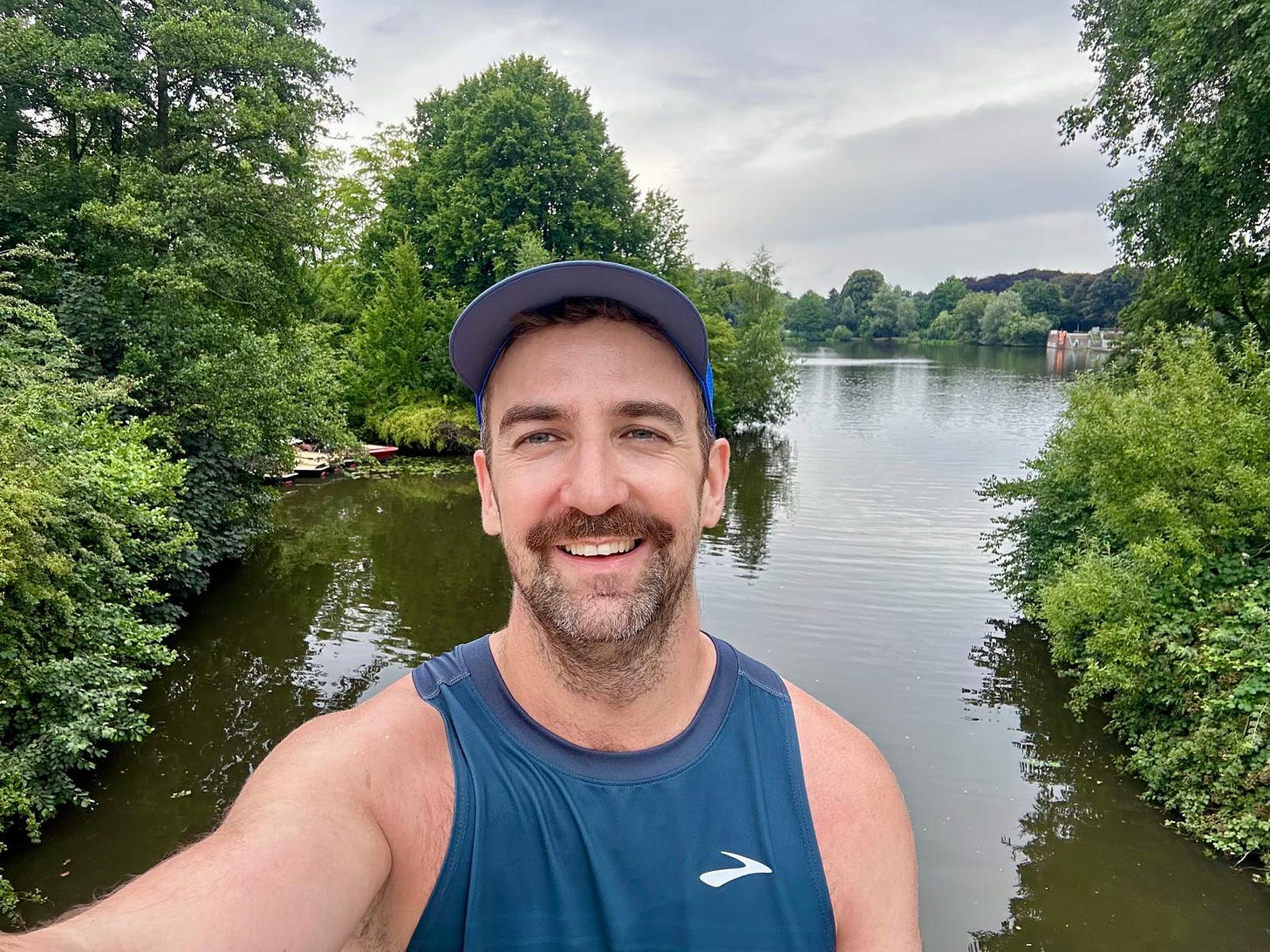From Anxiety to Freedom: Overcoming the Spotlight Effect
I’m everyones target - How I learned to be in the spotlight
I’m Everyone’s Target – How I Learned to Be in the Spotlight
Growing up in my family set me firmly on the path to social anxiety and the spotlight effect. My mother lived her entire life in fear of what other people might think about us. Shame was both the scariest and the most repeated word in our house.
“Are your ears clean?” my mother asked daily.
“Not that somebody sees that you’re dirty! They’ll think we don’t shower! What a shame!”
My father had a different approach to the spotlight effect. His strategy was to hide everything. That way, people couldn’t find any weaknesses to attack. At least, in his mind, it worked.
“Close the curtains!” he yelled whenever I turned on the light in the living room in the evening.
My father believed people would stop on the street to watch our version of Big Brother.
What a boring show that could have been.
It’s no surprise that later on, I developed similar biases in my adult life. If someone looked at me on the street, they were surely judging me. When a woman smiled at me, I felt awkward. I thought she was probably just trying to hold back bursting out laughing at me.
People were checking my clothes.
They judged my haircut, how I shaved my beard, and the way I talked.
Whenever I saw a group of people laughing, I would catch the moment when one of them glanced at me to see if I noticed.
It was obvious that I was their target.
I was convinced that every house across the street had binoculars in the windows. When the sun went down, they were ready for the new season of Sitting on the Couch with David.
Honestly, I could have streamed that on Twitch.
In my professional life, I held back my opinions. I never said anything in a meeting, even when I had ideas or disagreed with something. That could go wrong, as they would discuss my “poor ideas” and the way I spoke after the meeting.
Nodding like Vito Corleone in The Godfather seemed safer.
You won’t be surprised if I tell you it was no different in sports. At the gym, people watched each of my reps and commented on how weak I looked.
They knew when I got dizzy and was about to throw up right there in the open.
This was my life: living in the spotlight.
Quick favor: If this resonates with you, I’d be grateful if you subscribed to Running Home. I share more stories like this about growth, awareness, and the messy journey back to yourself. It’s free, and it helps me keep writing honestly. Thank you. — David
What is the Spotlight Effect?
The spotlight effect is a psychological phenomenon.
It is a cognitive bias that makes people believe others notice them more than they really do. This is especially true for mistakes or embarrassing moments. We often feel observed and judged, even when we aren’t drawing attention, and we tend to overestimate how much others are actually paying attention.
For instance, when I have a broken heart and go to the office, it feels like everyone knows and is judging me for “failing” in my relationship.
Or if I have food stains on my shirt, it feels like everyone will notice.
What Causes the Spotlight Effect?
The spotlight effect often comes from being overly self-conscious. It also stems from not being able to see things from others’ perspectives. This makes us focus too much on our own view. We feel like the center of attention and think others are watching us all the time.
Other factors can also contribute to the spotlight effect:
Familiarity: People know their own thoughts, inner world, and outward appearance best. They notice changes or discomfort. For example, if we have a bad haircut or a stomach ache, it feels obvious to us, and we assume others notice it too.
Anchoring: This is a cognitive bias that strengthens the spotlight effect. It happens when people stick to the first information they hear, which makes it hard for them to change their minds later. For example, if I was once told that I am bad at public speaking, I might continue to believe it even after giving successful presentations.
Illusion of transparency: This bias resembles familiarity, but it centers on our internal emotions. People tend to believe their feelings are visible to everyone. For example, if someone feels heartbroken, they may think others on the street can see it and will judge them.
As you can see, the spotlight effect is present in almost all of us, though its impact varies. Sometimes we feel like we’re in the spotlight, as if people might judge or laugh at us. But in reality, this happens much less than we think, and it shouldn’t make us feel miserable.
How I Stopped Feeling Everyone’s Eyes on Me
In my opinion, and based on my experience, everyone can heal from this cognitive bias.
The only thing you need to do is accept yourself as you are and work on improving your self-esteem.
Easier said than done, right?
There is one key thing you need to understand: you cannot control anyone around you. You cannot change the way they see you.
It is what it is.
But you can change yourself and the way you react to everything around you.
How to Start Healing from the Spotlight Effect from the Inside
You need to focus on two things: your physical health and your mental health.
Physical Health
If you feel great and full of energy every morning, you’ll see the world differently.
When I began to focus on my sleep, gave up alcohol, quit smoking, and avoided junk food, I felt incredible.
I also focused on my cardiovascular fitness, strength, and mobility. I started running regularly, exercising in the gym, and doing yoga. You don’t need to become a runner or a bodybuilder, but being active every day matters. Thirty minutes of running and a 30-minute gym session can put you in the top 10% of the population.
Consistency is key.
After practicing these habits for a few months, I looked in the mirror and was satisfied with the person I saw. My skin looked healthy, my eyes sparkled, and I wasn’t constantly tired like before. I didn’t even need coffee to start the day. You might not believe it, but these essential steps made me far happier than any external reward ever did.
Recap: Steps for Physical Health
Prioritize sleep. Aim for at least 7.5 hours of quality rest daily.
Revamp your diet. Cut sugar, junk food, and unhealthy fats, and focus on protein, vegetables, and whole grains.
Reduce alcohol, or better yet, eliminate it completely because it is harmful.
Quit smoking.
Drink at least 2 to 3 liters of water or unsweetened tea each day.
With these steps, you’re already ahead of most people, and I promise you’ll start feeling better in your own skin.
Mental Health
This part is tougher since we all come from different backgrounds. Still, some practices can help you feel more balanced. The first things that come to mind are yoga and meditation.
Yoga is simple. I do it several times a week for 20 minutes. It relaxes my nerves and helps me slow down in our fast-paced world. Meditation can feel intimidating at first. Many people don’t know how to do it, and I struggled too. I used to expect some spiritual experience that never came. Over time, I reduced my expectations, and now meditation feels amazing. It’s 10–20 minutes I spend with my own thoughts, accepting them rather than fighting them.
Running without music or podcasts is another form of this practice for me. I allow myself to be with my thoughts, and that acceptance strengthens my inner world.
Another thing that helped reduce stress is not procrastinating. If I need to pick up a package or handle administrative tasks like taxes, I do them as soon as possible. I noticed that the more I delayed, the more anxious I felt. Taking care of small tasks right away creates satisfaction because you’re productive.
Recap: Steps for Mental Health
Practice yoga or stretching regularly to connect your body and mind.
Meditate in your own way. There’s no perfect method. Either you meditate or you don’t.
Stop procrastinating. Get things done quickly, and you’ll feel accomplished.
The result
When you take care of your body and mind, you naturally begin to feel good in your own skin. That inner shift builds confidence and self-worth. Instead of worrying about how others see you, you focus on your own growth. As a result, the spotlight effect loses its grip and can shrink dramatically, sometimes even disappearing altogether.
You become powerful.
Finally Free: Living Without the Spotlight
Since I accepted myself, everything has changed.
I used to hide my passion for Marvel movies and books. I’m introverted, but I’m not socially awkward like I once thought. Letting these truths out has made a big impact. When people say I’m quiet, I just respond, “I’m introverted.” I prefer one-on-one conversations because I seek depth and want to give others my full attention. Nobody questions it, but they respect my honesty and authenticity.
Today, I can look at a photo of myself and say: I look good!
Even if I’m sweaty or haven’t shaved, I can appreciate the image. Sure, I still notice when I don’t look my best, but I no longer judge myself the way I used to. If a picture is less flattering, I just think, “It wasn’t my best day,” or “It was windy, so my hair looks crazy.”
The core feeling is: this is how I look, this is who I am, and I’m totally fine with that.
As you know from my previous writings, I started running a few years ago. That means I spend a lot of time in the city park, where many people are out almost every day, though less in winter. When you’re running, it’s hard to mask your emotions. Your face reveals everything. Your movements can feel clumsy. You might moan in pain, yet you keep going. Your honest self is on display, and everyone can see it.
At first, I often thought people were laughing at the way I ran. Maybe some of them were. But I also noticed that other runners sometimes looked a bit strange too. Not because they were doing something wrong, but because when we’re fully engaged, our bodies move in ways we don’t fully control.
So, I started smiling back at people because I felt good about myself. Some of them high-fived me. Some women smiled bigger. Some people looked at me with recognition, appreciating my effort.
That’s when my mindset began to shift. I went from thinking everyone was laughing at me to considering something else:
That woman might like me.
That man might like me too.
That group might be thinking, “This running guy is giving it his all. Not bad!”
Why should I assume people 1) always think about me, and 2) always focus on the negative? Those thoughts come from me, not them.
And the truth is, they aren’t. At least not 100% of the time. And the few who do judge or laugh? They’re allowed to have their moments.
I give them that.
And you should too.
Thanks for sticking with me through this one. If you’re going through something similar, or have your own experience with this, drop a comment. I read every one. — David
Reference: Verywell Mind, The Spotlight Effect and Social Anxiety
Read more:








Great idea with the different steps.